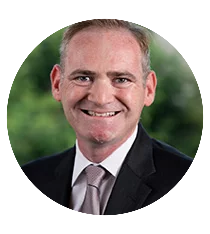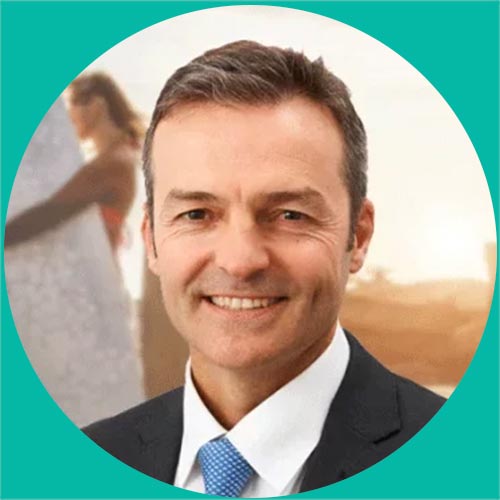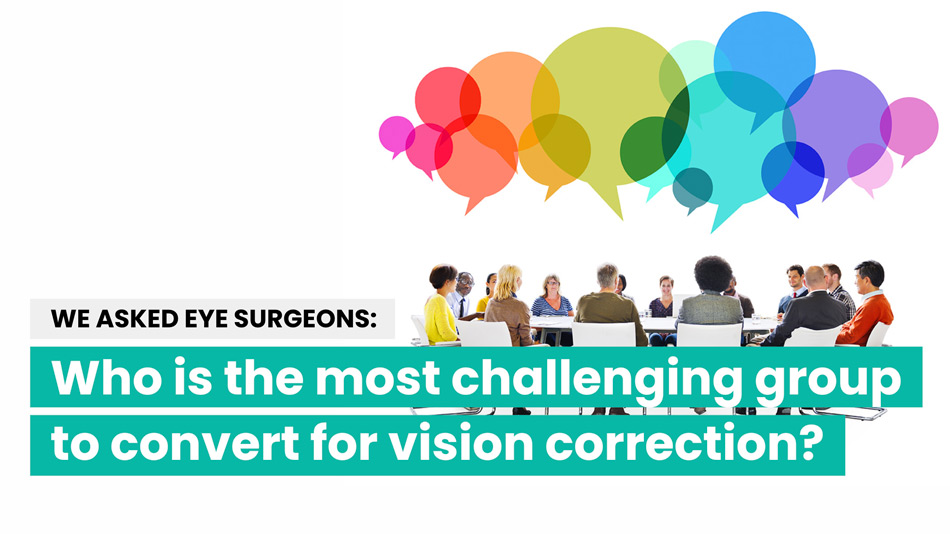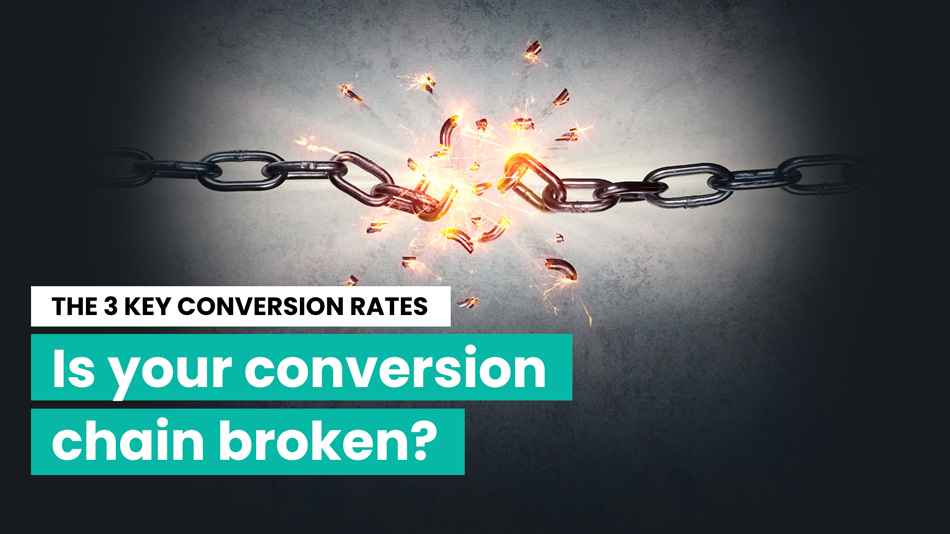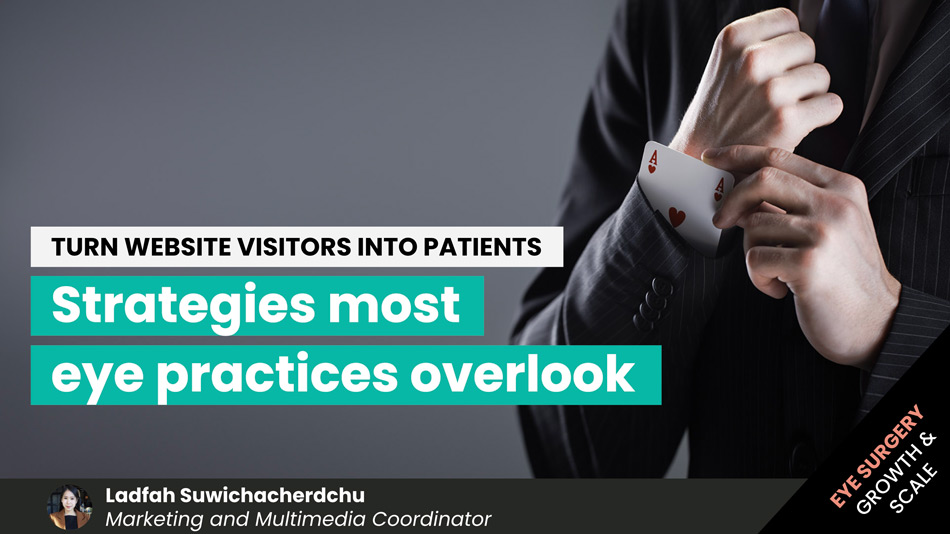Bungling phone inquiries may be causing you to lose out on new patients
The following transcription is an edited version of the podcast audio.
Laura Livesey (00:08):
We’re excited to be on the Trust Health Podcast today, talking about the top reasons why professional healthcare practices fail on the telephone and why it can be catastrophic to the overall business.
So I think maybe to start us off, we’re going to look at some of the myths and anxieties around answering the telephone, around selling, and that kind of thing.
Rod Solar is a trainer who’s been doing it for 20 years, training healthcare practices, everyone from secretaries to receptionists, healthcare technicians, optometrists, ophthalmologists consultants, everyone under the sun, how to deal with patients.
Laura Livesey (00:52):
One of the key areas he focuses on is helping the first line, people who deal with people on the telephone. So generally in practices, it’s not always the secretary, it’s really whoever is next to the phone.
So we’re going to share with you why that may not be a good idea and some of the common pitfalls that happen when the phone isn’t answered in that way. So I think the first thing we’ll look at is ethics. I think ethics come up a lot.
And maybe Rod, you can give us a little bit of an understanding of where a misguided sense of why sales may be unethical can get in the way of actually helping patients on the telephone when they first inquire.
Rod Solar (01:38):
I think that one of your own biggest enemies is yourself, in the sense that you frequently put barriers in front of yourself from being successful. I think that if you’d decide to go out into private practice, you can’t pick up one end of the stick and not pick up the other. The other end of the stick explicitly means that you are in the business of selling services.
Now, you might say, “Well, I don’t want to go out there, and I don’t want to be like a double glazing salesperson, or I don’t want to push the stuff upon people that may not want it. I don’t want to lie.” All these things are going through people’s heads. And I know this because I ask staff that I’m training and I go, What are the words,” free association time, let’s get on the couch and be like, Freud, “What are the words that you associate with the word sales?”
Rod Solar (02:35):
And most of the time when they get past telling me what they think I want to hear, they say things like pushy, they say things like lie, they say things like obnoxious, and all these negative connotations.
One of the biggest challenges that people have, not only yourself but the people who are working for you, is their reluctance, their resistance to laying out the value in what you offer and helping people get over their obstacles to get at what it is that they want.
These patients call you and come into your practices not because they’re lonely, not because they’re bored, but because they really want something from you. It’s your job in private practice to help them get what they want. And that, unfortunately or fortunately, depending on your perspective, is what selling is all about.
Laura Livesey (03:25):
So, in essence, you’re doing them a disservice if you don’t provide them with the information they’re calling in for. And unfortunately, that tends to happen quite a lot or more often than you might imagine.
So let’s turn now to who should answer the telephone. I think that this is often just whoever’s around can pick it up; we’ll leave it to the leftovers. So tell us a little bit about that and why you really should put some consideration into who’s picking up the phone.
Rod Solar (03:54):
An excellent point there. Usually, the test people have to pass before answering the telephone, is “are you alive?” Yep. “Are you breathing?” Yep. Okay, please answer the phone.
We got to go past that. We have to, if possible, and I would say it’s ideal if you’re serious about your practice, you got to dedicate somebody to the phone, and you have to answer that phone.
Because we’re not in the times where people are patient, your prospective patients might be called patients, but they’re very impatient. What they want to do is they want to get a solution to the problems fast, especially millennials.
Rod Solar (04:33):
Millennials, if that’s your market base, they’re not going to be interested in waiting for you to get back to the two or three days down the road once they’ve answered your voicemails. No, they want to be dealt with immediately. It’s taken a lot of energy and courage for them to pick up the phone because most millennials don’t seem even to want to use the phone. They tend to have to in this situation.
And then there better be somebody on the phone who’s receptive, trained, ready to go, and aim to convert that patient into a consultation. If you don’t have that in place, you leave heaps and heaps of money on the table. I don’t think that’s why you got into practice in the first place.
Laura Livesey (05:12):
I think this is a continuation of this, but maybe you can talk a little bit more. You mentioned that you need somebody dedicated, why can’t you just have, maybe it is a part of their job description to answer the phone and then say a medical secretary. I think that’s quite common in private practice, where you have a secretary that does a whole host of things. So why doesn’t that work?
Rod Solar (05:32):
Well, number one, they’re busy, they have a job. The reason you employ them is to do work. And if they see the telephone as an interruption in what they do every day, then that’s not good for you. They may have all the willingness to answer your phone. Still, if they’re busy chasing down bills or following up on other people who need to come in for aftercare appointments, then they’re not going to be available and ready to answer the phone properly.
A receptionist isn’t the ideal choice either because a receptionist also has a job to do. They’re on the front line, ensuring that they speak to your patients when they come and visit you. They don’t have the attention span, time, or resources to sit with a person on the phone for 15 minutes, which is ideally how long it really should take. But anywhere between 10 to 15 minutes for a good phone call. How will they have an intimate and in-depth conversation about private matters with 20 people in the waiting room? It just doesn’t work.
(NOTE: Want to see how your practice marketing measures up against the best in class? Take this 5-minute quiz to see how you stack up in the 9 areas of practice marketing and get specific tips and advice on how you can improve your weak points and better leverage your strengths).
Laura Livesey (06:37):
I think another one that I get all the time is I talk to consultants almost every day about their teams and what’s going right in the business, what’s wrong, how are the metrics going. I get asked all the time, or I should say I hear agonised questions about, “I’m not sure that my receptionist, my secretary, whatever, can and answer these questions. They don’t seem ready for it; they don’t seem up for it; they don’t seem comfortable with sales”, for example. So how do you view that and what kind of a person do you think should be doing this role?
Rod Solar (07:13):
Yeah, that’s a great question. I recently read a book by Simon Sinek called Start With Why. And one of the things he says is “The goal of business is not to do business with anyone who has what you’ve got or who wants what you’ve got. But rather the goal of business is to do business with those who believe what you believe.” I find that quote immeasurably impactful.
This also applies to employees. So if you don’t have people on your team who believe what you believe, in other words, that it’s a good thing to invite patients into a consultation, that it’s a good thing to remove obstacles in their path, to make it easy, to get them to take their next steps, that it’s a good thing to follow up with patients and to really, really take heart in the numbers and to feel like every patient you earn is a patient that otherwise would go to someone else and not to your practice, if they don’t feel strongly passionate about what you offer, then they’re in the wrong place. They shouldn’t be answering the phone.
Laura Livesey (08:11):
No, that makes perfect sense. And what about infrastructure? Many practices don’t have fancy phone systems and that sort of thing. What are the essential things practices need to have set up to do this right?
Rod Solar (08:22):
Well, I think any private practice needs to eliminate telephony; the idea of press one for this, press two for that, press three for that. That’s just a barrier in the way of having a conversation with a real human. So I think it’s super important and you can do it.
And you need to differentiate yourself away from the chains by having a real human who takes the time and has the infrastructure available to them to make quick and easy bookings.
Rod Solar (08:51):
So, one of the biggest things I notice is that while say you have somebody trained, number one, they don’t have a private room to enhance their phone calls. That’s problem number one. So they feel like everybody’s listening to them, and that’s not a good environment to stimulate this conversation.
Secondly, they have computer systems that are so slow that they have to make the patient wait on the phone to do the most simple things like to book the next available appointment. So when that happens, you just basically lose the momentum that you’ve worked so hard to create here, and you quite possibly may lose the booking.
Laura Livesey (09:26):
No, that’s a common one. I think many patients are frustrated, especially by the telephony, the press one, press two, and not getting a live human and just disappearing.
What about the methodology, in terms of how you handle the calls coming in? I’ve heard a lot of people say, “Well, my people don’t really want to go off of a script; they want to be themselves.” What kind of a process do you need to have in place to handle the calls?
Rod Solar (09:54):
First thing I’m going to say is that these calls cost money. If you’re doing any marketing, then every single call, you need to take the number of calls you receive divided by the amount of money you spent on marketing this month, and that’s how much your calls are worth.
So it’s essential to value these calls for what they are. So what we’re talking about here is having a process worthy of one of the most fundamentally important aspects of your business. What this means is not simply sitting there and responding to patient questions.
First of all, when they make a phone call to a clinic, most patients will say, “How much does it cost?” Then the person on the phone who you employ will say, “It costs this much.” Then in 50% of the cases, they go, “Okay, well, thanks very much, much moving forward. That’s too much for me.” And they hang up the phone.
Rod Solar (10:41):
Now, in the other 50% of the cases, what they might do is they go, “Okay, that’s interesting. I have more questions.” So they might ask another question, and they ask another question. And then they exhaust themselves of the questions they have and then go off. There’s no call to action, there is no request to make an appointment.
Basically, what the person that you’ve employed to do this is doing is they’re acting like a human version of a website FAQ, and you need them to go further than that.
Rod Solar (11:10):
You need them to take control. You need them to decide, okay, this is a qualified patient I would like to invite into my clinic. So now I’m going to take you patient, through a series of questions for me to make a relationship with you, for me to excite you and provide value for you as a result of this phone call, and then invite you to consultation once I deem it’s appropriate for you to come in. Because my time is precious, my doctor’s time is precious, and I would like you to come in and see if you’re suitable for treatment.
So that’s essentially the process that I teach. It has to be an active process where the person you have answering the phone is a leader; it’s not a follower.
Laura Livesey (11:58):
It’s not about product knowledge, is it?
Rod Solar (11:59):
No, no, no, no. Look, product knowledge is excellent, but the time to offer product knowledge is… You’ve got to know enough to be able to answer some basic questions. But the critical thing is that people aren’t coming to see you for product knowledge.
What you’re doing on the phone is you’re selling the appointment. And product knowledge is best discussed at the appointment by the professionals whose job it is to know that information.
Laura Livesey (12:20):
Not when you’re booking the appointment but at the appointment.
Rod Solar (12:22):
No, absolutely.
Laura Livesey (12:23):
No, that makes sense. And I think finally the issue of, how do I reward people and how do I keep them accountable, what accountability structures do you need in place?
Because I never come across this before we work with clients. It’s really something that’s an afterthought, is I need to have these structures in place.
So what would you recommend in terms of getting people happy and excited in their role and ready to perform at a high level?
NOTE: The best way to answer that nagging question about practice growth or marketing or patient volume in the back of your mind is to book a free 15-minute compatibility call. Get some options and go away with a clear idea of what’s possible.
Rod Solar (12:51):
First of all, you’ve got to hire the right people, and we’ve just used that.
Second, you have to monitor what they do and set goals for them. How many practices out there are telling their people, “well, here’s what I expect” very clearly, how many calls you’ll likely receive and how many calls I want you to convert? How many people are telling their employees what I expect and making it super clear and important enough that they monitor it every day?
So there’s a spreadsheet or a piece of software out there that actually reports back a conversion rate every single day. I know about maybe the number of practices I can say is doing that, I can count them on the one hand, and it’s such an important function. So tracking conversion rates is essential.
Laura Livesey (13:39):
And just to be clear, you mean on an individual level.
Rod Solar (13:41):
I mean individual level.
Laura Livesey (13:42):
Because we see this in clinics with one, the person on the phone. I think a lot of our listeners may have that. So we’re not talking about a big company here; we’re talking about doing this for whoever handles your phone calls; they’re that important.
Rod Solar (13:54):
Absolutely. You also have to invest training into them. You can’t just expect somebody to learn from the other person who’s been doing it improperly. Most clinics don’t even have a manual for this. They don’t have a process; they don’t teach people what to do. They basically throw you on the phone and hope that you learn by osmosis. You need to have a training process and induct people in that training process so that they really understand what you want them to do.
Laura Livesey (14:18):
And keep in mind, as Rod said earlier, the reason again for that, the reason that it makes sense is that every call is worth, depending on your industry or your speciality, anywhere from 100 pounds to sometimes it takes up to 300 plus pounds to generate that phone call. So you just can’t let anyone on it.
Rod Solar (14:38):
And then most importantly, I would say, if you want them to stay on the job, you’ve invested the money in hiring the right person, you’ve trained the right person, then you’ve got to appreciate them. And it’s super important to identify what ticks everybody’s buttons and ensure that you appreciate them on their level.
Some people like gifts, money, that’s a very, very clear incentive that’s the brute force incentive that some people think is useful. But beyond that, there are so many things you can look at. Words of appreciation, a public or a private pat on the back, spending time with people, establishing regular events, outings parties, and having them come to conferences. There’s loads and loads of things, and I’ve only scratched the surface.
Rod Solar (15:31):
I’ve got lists and lists and lists of these potential employee reward and recognition ideas that you need to systematise and ensure that you are delivering. Because the last thing you want to do is promise some things and then not deliver them.
So you got to treat your employees, okay, this is going to be a bold thought, but you got actually to treat them better than you treat your patients. Wow, you got to treat your employees better than you treat your patients. Why? Because you are expecting your employees to treat your patients well. And if you don’t treat your employees as well or not better, they’re not going to want to do that.
Laura Livesey (16:11):
They’re not going to hit the mark.
Rod Solar (16:11):
No.
Laura Livesey (16:13):
Thank you, Rod. Well, I think that’s all the time we have for today. I’ve really enjoyed talking through the pitfalls, I suppose, of answering the telephone.
Laura Livesey (16:25):
As always, we want to hear from you. So why don’t you now map out your telephone process? What are you doing on the phone calls? Which of these pitfalls do you think you’re falling into? Is it that you’re not answering the phone appropriately? Do you have telephony? Are you not taking leadership and guiding people through the process? Where do you think things are falling apart from you and how can you do things better? So what do you think about that? It’s essential; it’s actually step two of the five-step process to grow a thriving clinic. You really need to have this step in place. And if you do get it right, you can essentially double your business. So it’s a really, really essential step to have right in private healthcare in the UK.
About the author

LiveseySolar
LiveseySolar’s mission is to double the size of 150 cataract and refractive surgery practices. Using our proven marketing frameworks and deep market knowledge, our customers can predictably and sustainably grow their practices so that they can enjoy a healthy balance between both worlds – a successful private practice and a happy life.
Related Posts
Meet our Co-Founders
We’re passionate about helping leaders of high-quality, growth-minded practice owners double their practice revenue

Rod Solar
Founder & Scalable Business Advisor
For over 20 years, I’ve helped ophthalmology entrepreneurs scale their private practices. I specialise in doubling revenue within three years by offering a proven framework, hands-on experience, and a team of experts who implement what works. We take the guesswork out of growth and scale, so you can focus on delivering exceptional patient care while maximising the value of your business.
LiveseySolar completely transformed the way we were approaching this… We’ve gone from having just the dream of having a practice to having a practice up and running with people making inquiries and booking for procedures… It’s extremely pleasing. We feel lucky we connected with LiveseySolar.
— Dr Matthew Russell, MBChB, FRANZCO, specialist ophthalmic surgeon and founder of VSON and OKKO

Laura Livesey
Founder & CEO
I’m the co-founder & CEO of LiveseySolar. I’ve developed powerful eye surgery marketing systems that increase patient volumes and profits for doctors, clinics, and hospitals, since 1997.
Rod and Laura know as much about marketing surgery to patients as I know about performing it. They are an expert in the field of laser eye surgery marketing. They know this industry inside out. I believe that they could help many companies in a variety of areas including marketing materials, sales training and marketing support for doctors.
— Prof. Dan Reinstein, MD MA FRSC DABO, founder of the London Vision Clinic, UK


